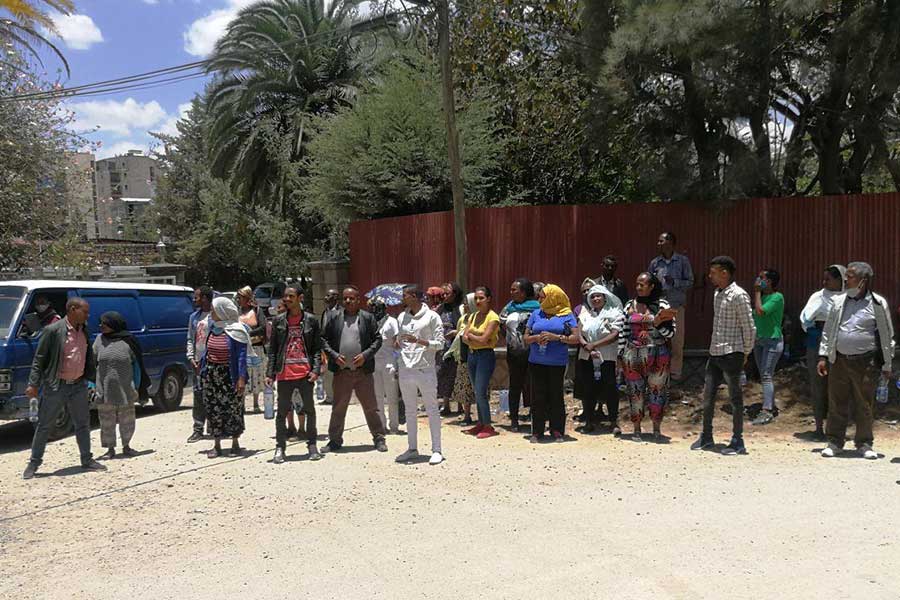
Commentaries | Sep 27,2020
I met up with a longtime friend at a coffee house. Famous for its taste and service ambience, it was a favourite spot. It was shortly after we met up that she conversationally recalled anecdotes I shared with her ages ago.
After I joked about the word “anecdotage,” which is an older person strongly inclined to tell reminiscent anecdotes, a renowned insurance company from the 17th century popped into our discussion. At the outset, it wrote only marine insurance, taking its name from a coffee house run by Edward Lloyd. It was formed by businessmen willing to insure against sea risks and meet up at the coffee house. “A-1” was used in its pages to denote the highest class of ship – now, it is used for anything excellent or first class.
As we were amazed by such developments, long ago, we lamented whether advances in information technology, medicine and knowledge of diseases that have leapt forward over the past years have matched in avoiding vulnerabilities of patients and healthcare professionals.
I asked her what if health facilities took the initiative to identify the potential risks from medical device design, human factors such as fatigue and stress, and errors in communication by seeking insurance against these risks. No matter what the insurer’s response, no doubt the exercise improves medical errors recurrence.
As we used to work together, the issue reminded me of what many assumed was an extra mile to go. I also tried every which way to identify the potential for risks in the conduct of a corporate office’s group companies and recommended insurance against these risks. Thanks to her recollections, it was about my unsuccessful attempt to prop up a poultry company’s biological stock management potential for risks.
Though unpredictable and improbable, a black swan event is possible in the poultry industry, which put the insurance company we were dealing with in a terrible dilemma. Finally, the costs were considered too high and the coverage was denied. Our plea for possibilities of opportunities expanding the policy type in Ethiopia, underlining its advantages for us and our assurances to commit to every word in the draft contract proposal, was unheeded.
Still, the whole exercise resulted in establishing the poultry facility’s policies, and it stipulated the proper assessment of demand for poultry products and planning of the size of activities. It resulted in, among others, a well-designed operation which has few impacts on community amenities and the environment through attention to detail and strict adherence to a daily schedule of checking, maintenance and necessary adjustments of the shed environment, litter, feeders and the ventilation system.
Sheds are only stocked at densities that comply with established procedures as overstocking causes increased litter moisture and potential odour problems and reduces both bird health and performance. The operation uses clean bedding materials with prescribed attributes and sound litter management, which is integrated into the operation and effective management of manure and litter is in place together with the selection and use of pesticides. Dead bird management ensures carcass disposal practices are not contaminating ground and surface water, causing odour nuisance, spreading infectious diseases and attracting vermin.
One of the main challenges against proper insurance is the “issue attention cycle,” which refers to why a particular social problem all of a sudden rises into the media along with public attention, remains a subject of importance for a short span of time, then fades away and leaves centre stage, and despite largely being unresolved, gives way to other issues of the day. Issues considered as medical errors or poor services are among the main problems, needing comprehensive, consistent and proactive data-based awareness.
Hopefully, today's business leaders and strategists are doing a better job hedging against risk. Otherwise, either in poultry, the medical profession or elsewhere, the system will break down.
PUBLISHED ON
Sep 17,2022 [ VOL
23 , NO
1168]


Commentaries | Sep 27,2020

Viewpoints | Sep 30,2023

Commentaries | Jun 08,2024

Commentaries | Aug 03,2019

Fortune News | Apr 12,2020

Dec 22 , 2024 . By TIZITA SHEWAFERAW
Charged with transforming colossal state-owned enterprises into modern and competitiv...

Aug 18 , 2024 . By AKSAH ITALO
Although predictable Yonas Zerihun's job in the ride-hailing service is not immune to...

Jul 28 , 2024 . By TIZITA SHEWAFERAW
Unhabitual, perhaps too many, Samuel Gebreyohannes, 38, used to occasionally enjoy a couple of beers at breakfast. However, he recently swit...

Jul 13 , 2024 . By AKSAH ITALO
Investors who rely on tractors, trucks, and field vehicles for commuting, transporting commodities, and f...

Jun 28 , 2025
Meseret Damtie, the assertive auditor general, has never been shy about naming names...

Jun 21 , 2025
A well-worn adage says, “Budget is not destiny, but it is direction.” Examining t...

Jun 14 , 2025
Yet again, the Horn of Africa is bracing for trouble. A region already frayed by wars...

Jun 7 , 2025
Few promises shine brighter in Addis Abeba than the pledge of a roof for every family...